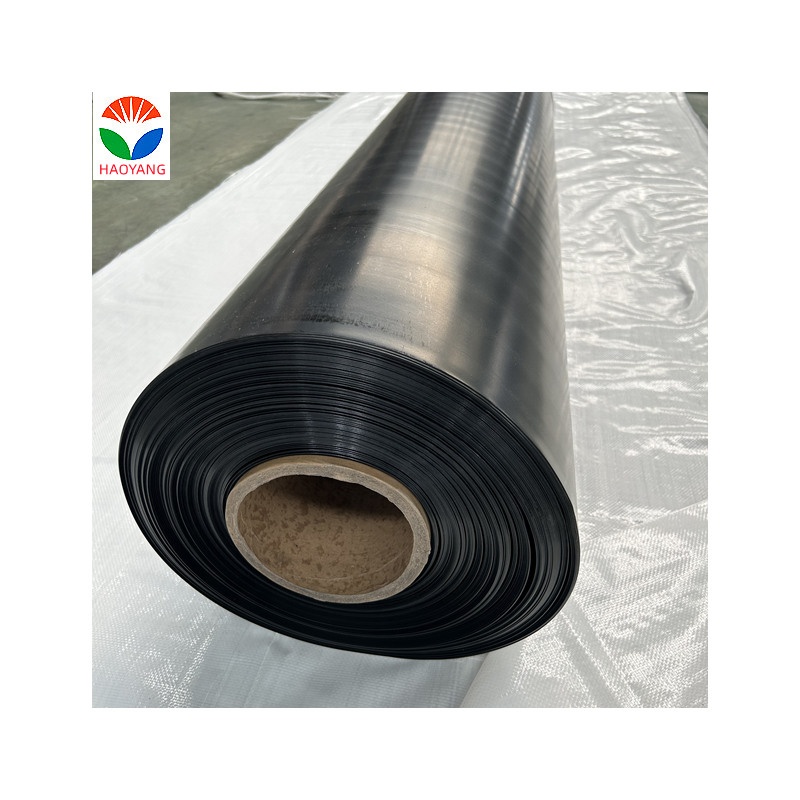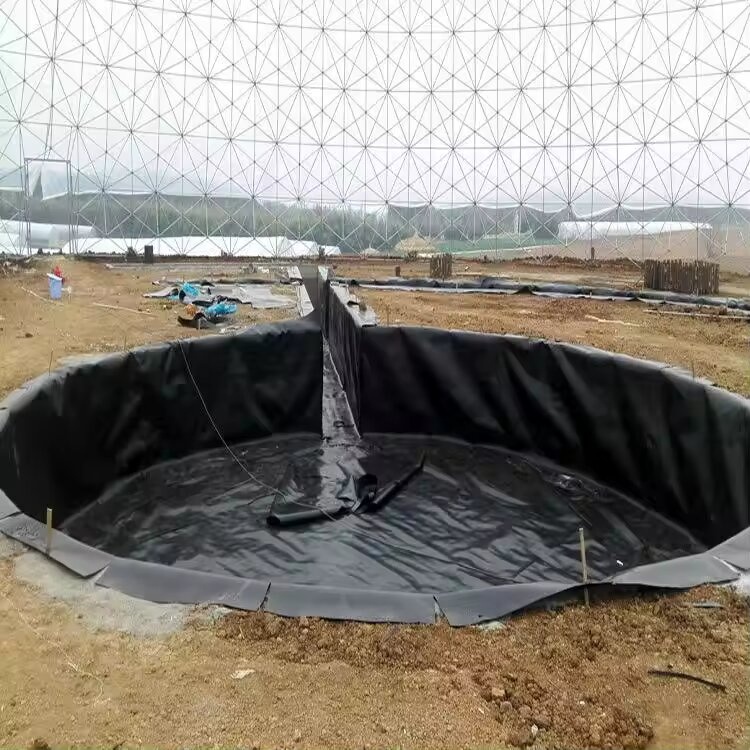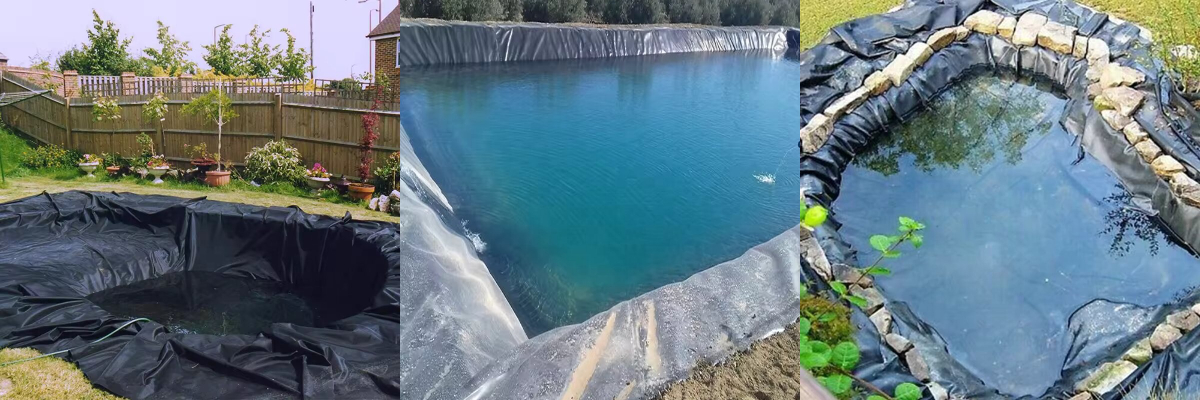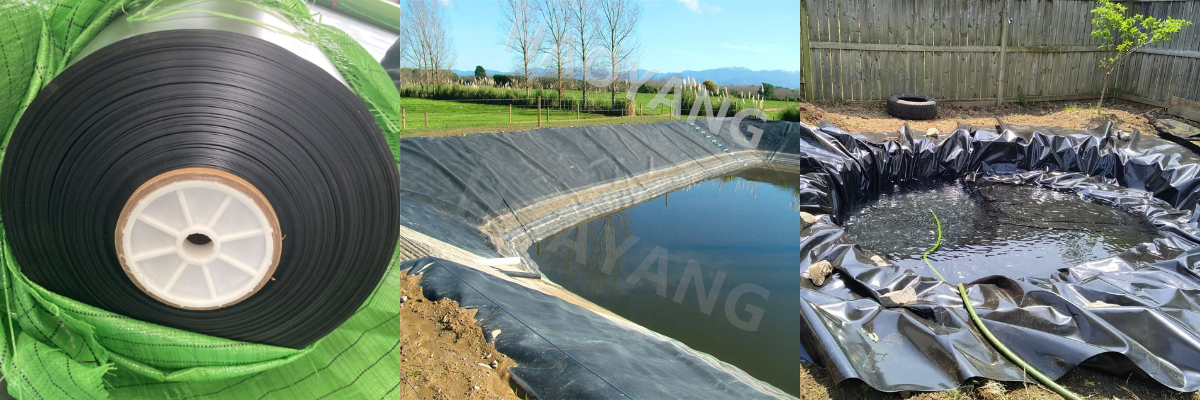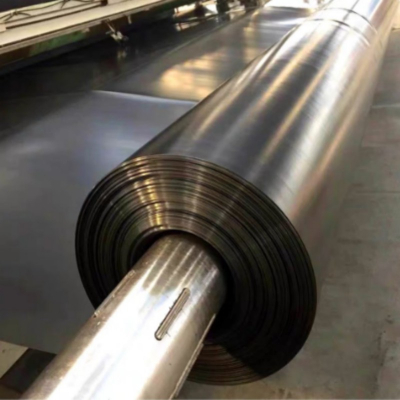1mm PVC Geomembrane
Excellent Tensile Strength
High elongation capacity (300–400%) prevents tearing under stress, suitable for dynamic loads like water storage.
Weatherproof Performance
Operates in extreme temperatures (-30°C to +70°C) without embrittlement or deformation.
Low Permeability
Impermeable to water and gases, ensuring zero leakage in liners for ponds, reservoirs, or hazardous waste containment.
Lightweight & Easy Handling
Simplifies installation in remote or elevated areas, reducing labor and equipment costs.
1mm PVC Geomembrane: A Comprehensive Guide to Properties, Applications, and Performance
PVC (Polyvinyl Chloride) geomembranes have emerged as a cornerstone material in modern civil engineering, environmental protection, and infrastructure development. Among the various thicknesses available, the 1mm PVC geomembrane strikes a balance between cost-efficiency, durability, and versatility. This article explores the technical specifications, applications, and benefits of 1mm PVC geomembranes, supported by empirical data and industry standards.
1. Introduction to PVC Geomembranes
PVC geomembranes are synthetic membranes manufactured from polyvinyl chloride resin, stabilized with additives to enhance resistance to UV degradation, chemicals, and mechanical stress. The 1mm variant is particularly favored in projects requiring moderate flexibility, puncture resistance, and long-term performance in diverse environments.
Key Advantages of 1mm PVC Geomembrane
Cost-Effective: Thinner than heavier alternatives (e.g., 1.5mm or 2mm) but still meets performance benchmarks for many applications.
Flexibility: Ideal for projects with irregular surfaces or complex geometries.
Chemical Resistance: Withstands acids, alkalis, and hydrocarbons, making it suitable for industrial and municipal waste containment.
UV Stability: Enhanced formulations ensure longevity in outdoor exposures.
2. Technical Specifications
The performance of a 1mm PVC geomembrane is governed by its physical, mechanical, and chemical properties. Below is a detailed breakdown of key parameters:
2.1 Physical Properties
| Parameter | Value | Test Method |
Thickness (nominal) | 1.0 mm ± 5% | ASTM D5199 |
Mass per Unit Area | 1,200–1,500 g/m² | ASTM D792 |
Density | 1.3–1.5 g/cm³ | ASTM D792 |
Water Vapor Permeability | <0.1 g/(m²·24h) | ASTM E96 |
2.2 Mechanical Properties
| Parameter | Value | Test Method |
Tensile Strength (MD/TD) | 25–35 MPa | ASTM D6693 |
Elongation at Break (MD/TD) | 250–350% | ASTM D6693 |
Puncture Resistance | >200 N | ASTM D4833 |
Tear Resistance (MD/TD) | 80–120 N | ASTM D1004 |
2.3 Chemical Resistance
| Chemical | Resistance Level | Conditions |
Sulfuric Acid (10%) | Excellent | 30 days, 25°C |
Sodium Hydroxide (10%) | Excellent | 30 days, 25°C |
Diesel Fuel | Good | 7 days, 25°C |
Methanol | Moderate | 7 days, 25°C |
2.4 Environmental Performance
| Parameter | Value | Test Method |
UV Resistance (ASTM G154) | Passes 5,000 hours | ASTM G154 |
Oxidative Resistance | Passes 168 hours | ASTM D5721 |
Low-Temperature Flexibility | -40°C (no cracking) | ASTM D746 |
3. Applications of 1mm PVC Geomembrane
The adaptability of 1mm PVC geomembranes makes them suitable for a wide range of applications:
3.1 Environmental Protection
Landfill Liners: Act as a barrier to prevent leachate contamination of soil and groundwater.
Waste Containment: Used in hazardous waste sites and industrial lagoons.
Mining: Tailings ponds and heap leach pads.
3.2 Water Management
Canal Liners: Reduce seepage in irrigation canals and reservoirs.
Aquaculture: Ponds for fish farming, ensuring water retention and preventing escape.
3.3 Infrastructure
Tunnel Linings: Protect against water ingress in underground structures.
Roofing Systems: As a waterproofing membrane for flat roofs.
3.4 Industrial
Chemical Storage: Secondary containment for tanks and pipelines.
Oil Spill Containment: Floating barriers and temporary storage.
4. Case Study: Landfill Liner Application
In a municipal solid waste (MSW) landfill in Southeast Asia, a 1mm PVC geomembrane was installed as the primary liner. Key outcomes:
Cost Savings: 30% reduction in material costs compared to 1.5mm alternatives.
Performance: After 5 years, no detectable leachate leakage (measured via piezometers).
Installation Efficiency: Thinner material reduced welding time by 15%.
5. Installation Best Practices
Proper installation is critical to maximize the lifespan of a 1mm PVC geomembrane:
5.1 Subgrade Preparation
Surface Smoothness: Remove sharp objects (e.g., rocks, debris) to prevent punctures.
Compaction: Achieve ≥95% Modified Proctor Density for soil subgrades.
5.2 Welding Parameters
| Parameter | Recommended Value |
Welding Temperature | 450–550°C |
Welding Speed | 1.5–3.0 m/min |
Seam Overlap | 75–100 mm |
5.3 Quality Control
Air Pressure Testing: Detect leaks in welded seams (ASTM D4437).
Visual Inspection: Check for wrinkles, folds, or gaps.
6. Maintenance and Longevity
While 1mm PVC geomembranes are designed for durability, periodic maintenance ensures optimal performance:
Annual Inspections: Check for physical damage or chemical degradation.
Repair Kits: Use PVC patches and adhesive for minor tears.
Vegetation Control: Remove plants growing on the membrane surface.
Expected Lifespan: 20–30 years in typical applications, depending on environmental conditions.
7. Environmental Considerations
Modern 1mm PVC geomembranes incorporate eco-friendly additives to reduce their environmental footprint:
Phthalate-Free Plasticizers: Eliminate harmful chemicals.
Recycled Content: Up to 30% post-consumer recycled PVC in some formulations.
End-of-Life Recyclability: Can be repurposed into drainage boards or traffic cones.
8. Future Trends
The demand for 1mm PVC geomembranes is expected to grow due to:
Infrastructure Investment: Global spending on water management and waste containment.
Technological Advancements: Nano-additives for enhanced UV resistance and self-healing properties.
Regulatory Compliance: Stricter environmental laws driving adoption of reliable containment solutions.
9. Conclusion
The 1mm PVC geomembrane represents a sweet spot in the geomembrane market, offering a compelling mix of affordability, performance, and adaptability. Its proven track record in environmental, industrial, and infrastructure projects underscores its value as a critical material for sustainable development. By adhering to installation best practices and leveraging technological innovations, this material will continue to play a pivotal role in addressing global challenges related to resource management and pollution control.


